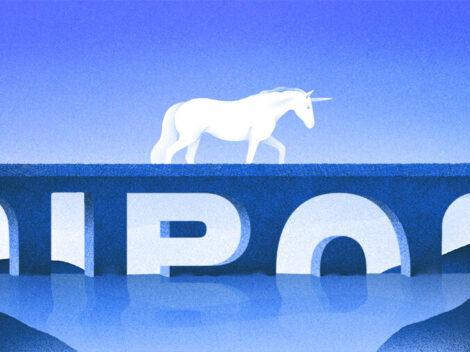Morning Markets: Good morning from the cold East Coast, here’s some math.
We’ve spent a lot of time over the years here at Crunchbase News looking at the value of revenue. In that category, we’ve spent most of our time exploring the value of revenue from software companies.
Subscribe to the Crunchbase Daily
Software, mostly now sold through the software as a service model (SaaS), is a key component of high-growth private companies, especially those that have raised from private investors (startups). So SaaS revenue, a subset of software revenue writ large, matters.
This morning I want to take a moment to look at some companies in the SaaS space that are currently among the most richly valued companies in their space. We’re turning back to the Bessemer cloud index to examine the highest-valued public SaaS companies. By looking only at the most richly-valued we can understand what’s currently in-vogue amongst public investors.
When we’re done we’ll have a list of qualities that startups still on the make can aim for when they reach scale. It’ll be fun, let’s go!
20x Or Bust
Bessemer’s index, officially dubbed “The BVP Nasdaq Emerging Cloud Index,” provides a number of useful metrics along with its aggregated data on public cloud and SaaS companies. Things like this year’s enterprise value divided by revenue, trailing free cash flow margins, and run rate revenue growth (in percentage terms), along with gross margin.
As these are our favorite things, we pulled the numbers from every company on the list with a current enterprise value (a metric similar to market capitalization) of 20 times or greater than its expected 2019 “run rate revenue,” to use the officially listed term. Then we simply averaged the metrics from each company that made the cut (not weighted by market cap or revenue scale, let’s be kind to ourselves on a Monday) to get aggregate results from the small cohort.
Thus, amongst the eight companies trading richly enough to meet our criteria:
- EV / 2019 Run Rate Revenue: 26.3x
- EV / 2020 Rev: 20.3x
- LTM FCF Margin: 19 percent
- Run Rate Revenue Growth: 48 percent
- Efficiency: 66 percent
- Gross Margin: 73 percent
Efficiency, in case you don’t have an encyclopedic knowledge of Bessemer blog posts, is a calculation of a company’s free cash flow (FCF) margin plus its growth. So, if you had a 5 percent FCF margin and, say, 35 percent growth, you would earn an efficiency score of 40. Quoting Bessemer, “for the average public company a few years after IPO, an Efficiency Score above 40 is considered great.”
So “Efficiency” is similar to the Rule of 40, but different. (Kinda. A lot of folks run Rule of 40 calculations using FCF margin instead of, say, adjusted EBITDA margins let alone GAAP net income. Anyways.)
We now have our metrics. Summarizing, the most richly-valued public SaaS and cloud companies in revenue terms have FCF margins of around 20 percent, grow at about 50 percent, have very strong efficiency scores, and sport somewhat average gross margins.
The only surprise in the data was that final result; it was easy to presume that the SaaS companies with the strongest revenue multiples would sport higher average gross margins. Anyway, if you are a startup, you know where you want to aim when you reach scale. How big? The average company in our shortlist has a market cap of $17 billion.
Illustration: Dom Guzman

Stay up to date with recent funding rounds, acquisitions, and more with the Crunchbase Daily.



![Illustration of blender with random icons and M&A buttons. [Dom Guzman]](https://news.crunchbase.com/wp-content/uploads/MA_blender-470x352.jpg)


![Illustration of a guy watering plants with a blocked hose - Global [Dom Guzman]](https://news.crunchbase.com/wp-content/uploads/quarterly-global-3-300x168.jpg)
67.1K Followers